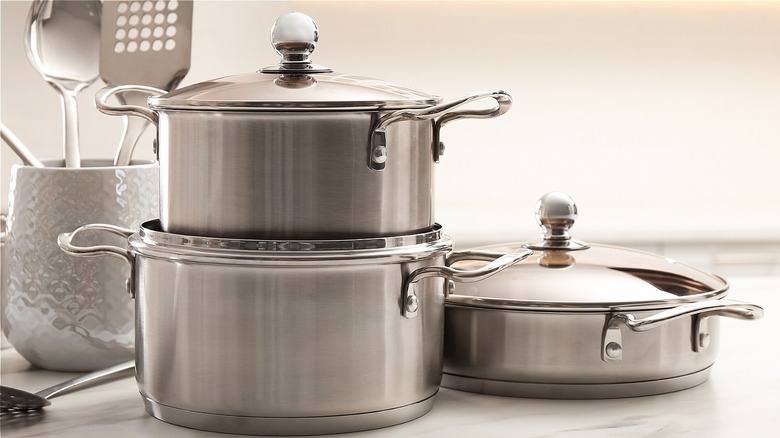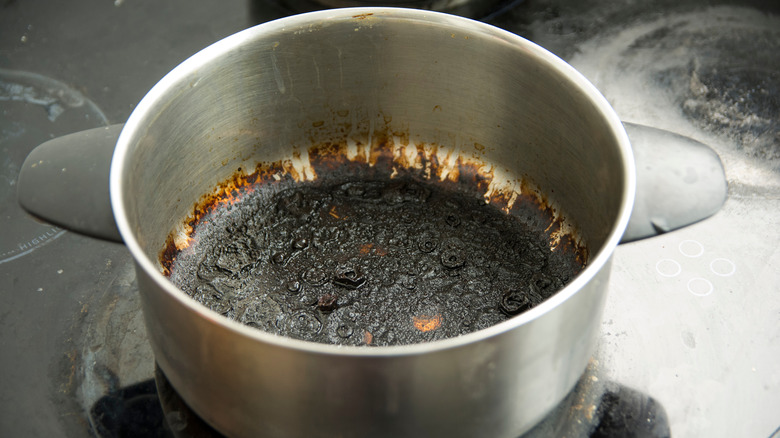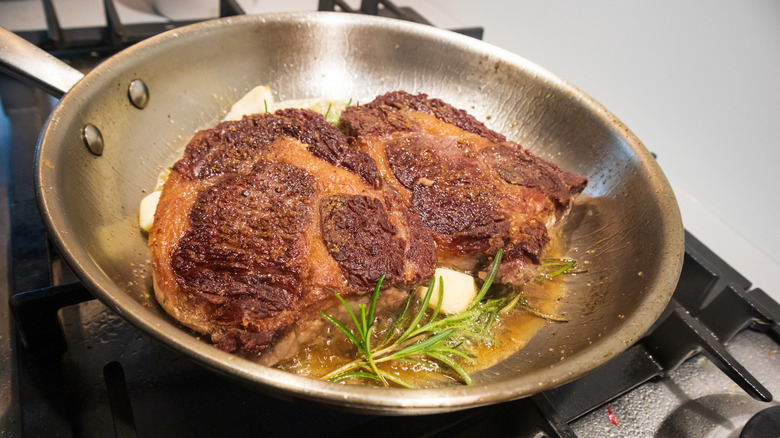Why You Should Never Use Cooking Spray On Stainless Steel Pans
Stainless steel cookware is popular because it is durable, can withstand high cooking temperatures, and does not rust or break easily. Stainless steel pans are oftentimes preferred by chefs and restaurants because they work for a variety of cooking tasks and ensure effective heat distribution and retention. When used properly, stainless steel can prevent food from sticking and can be used from the stove straight to the oven, unlike many nonstick pans. Better yet, quality stainless steel is hard to dent, scratch, or chip, even throughout a lifetime of use.
However, it's still possible that your stainless steel pans could become damaged, discolored, warped, or even sticky over time. To prevent this undesirable outcome, it's important to care for your pans by following the right cooking and cleaning procedures. One of the most important actions to guarantee that your shiny stainless steel cookware remains impeccable is to avoid using cooking spray on your pans.
Cooking spray can make stainless steel pans sticky
Most people use cooking sprays for their convenience in quickly greasing a pan for food prep. These sprays are typically made from olive, vegetable, or canola oils, which are perfectly safe on their own. However, some additional ingredients in cooking sprays can have adverse effects on your cookware. As Chosen Foods explains, cooking sprays not only have oil, but also contain different additives, emulsifiers, solvents, and propellants. Additives include anti-foaming agents, such as dimethyl silicone, and emulsifiers, such as lecithin. Aerosol propellants used in these sprays depend on the manufacturer but can include propane, isobutene, butane, carbon dioxide, and nitrous oxide.
Emulsifiers, though, are the main reason why you should avoid using cooking sprays on your stainless steel pots and pans, as they tend to form a sticky layer over time. "Cooking sprays are very gummy and virtually impossible to get off the pan," Hestan cookware executive Pamela Stafford told Kitchn, adding that you should use oil or butter with your quality cookware instead. Still, if you're hesitant about ditching cooking sprays in the fear that your food will stick to your stainless steel pans, there's a way around that.
How to make stainless steel pans non-sticky
The trick that will prevent food from sticking to stainless steel pans is all about pre-heating the pan before adding cooking oil. Place the empty stainless steel pan on the stove over medium heat, and let it get hot for about two or three minutes. You'll know it's hot enough when you sprinkle a few drops of water into the pan and they quickly "crackle and slide," per Cristel. After this, add the cooking oil and wait for another one or two minutes for the oil to heat up to the correct cooking temperature. When you add your ingredients, you'll discover that the oil has become a non-stick "barrier" between the food you're preparing and the surface of your frying pan, explains Misen. Just be sure that the oil does not overheat; if you notice the oil is smoking, the heat is too high.
If you're ready to stop using cooking spray on your stainless steel pans, there are a host of non-stick cooking spray alternatives for you to try, such as olive oil, coconut oil, bacon grease, lard, or butter.


